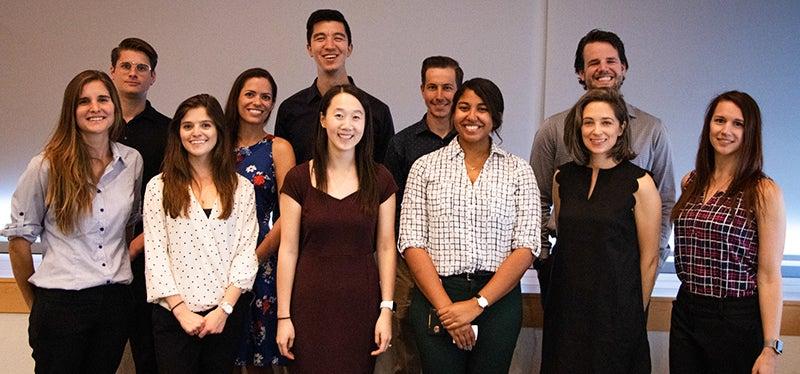
ARCS award means life's a little easier for some of ASU's top doctoral candidates
The latest Arizona State University recipients of the Achievement Rewards for College Scientists recently met to showcase their wide-ranging research and thank many of the donors who made their work possible.
Each year, the ARCS Foundation Phoenix Chapter awards $8,500 to academically excellent doctoral students — money to be used in whatever way students need.
“The ARCS Scholar award is a financial reward with basically no strings attached,” said Christine Hawes, the treasurer of the national ARCS Foundation. “They can spend it on baby food. They can spend it on whatever helps them in their lives to relieve a little bit of the strain of daily life while they're working on their PhD.”
Tanessa Call is a neuroscience student and one of 13 ARCS Scholars at ASU for 2019–20. Her work centers around Sirtuin 1, a protein that plays a role in depression. Call, who hopes to obtain her doctorate next fall, said the funding came at a critical time and helped her out of a bad situation.
“Rents have been going up like crazy all over the place,” Call said. “Like many people, my car has issues. It's really just given me peace of mind.”
Cindy Xu used some of her ARCS award this summer to present her work at conferences across the country. Her research focuses on the regenerative properties that exist within lizards’ tails; she hopes her findings will lead toward the development of tissue regeneration therapies in humans.
“What's really interesting about them is that when they regenerate, the anatomy of the regenerated tail is entirely different from the original tail,” Xu said. “We really want to know what's going on at a genetic level and how exactly this can initiate regeneration.”
Xu said attending those conferences has been a vital networking tool, both as a scientist and soon-to-be graduate in search of postdoctoral opportunities.
The ARCS Foundation is a nonprofit organization of women who sponsor students like Call and Xu in the areas of science and technology. It has provided nearly $87 million in funding nationwide to more than 14,700 scholars since its founding in 1958.
For more information about the award and the nomination process visit the Graduate College website.
More stories from the Graduate Insider

Graduate education is an adventure
About eighteen months ago, I set out on a journey walking the islands of the Dodecanese during a sailing trip in Türkiye and Greece with several friends. Along the way, I found winding paths, timeless villages and breathtaking views of sea and sky. That experience got me thinking about how adventure shows up in other parts of life, especially in learning.

Finding your flow: Managing the graduate writing process
Graduate writing can feel like a marathon—long, demanding, and full of unexpected detours. But as Tristan Rebe, Program Manager for the Graduate Writing Center, reminded students in the Grad15: Managing the Writing Process webinar, writing is not about perfection—it’s about progress. “The best dissertation is a done dissertation,” Rebe said, quoting Robert Frost: the best way out is through.
